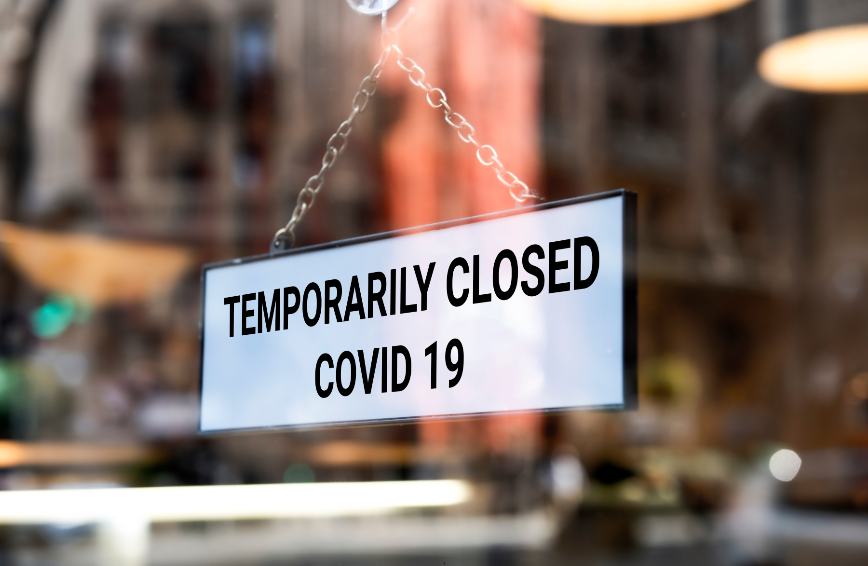As the UK tourism and hospitality sector gather evidence linked to the impacts of Covid-19, Dr Karen Thomas, Dr Daniel O’Donoghue & Dr Julie Scott explore how insights into localised labour markets are vital to businesses and regions lobbying for the support needed to ensure future recovery.
Tourism and hospitality is widely reported as one of the sectors which have been hardest hit by the Covid-19 crisis. Whilst the pressures of lockdown are currently devastating to these businesses, still closed at the start of the season, the mid- to long-term impact of the crisis will not just play out in the experience of these organisations and their employees, but in the communities and regions that their economic viability supports.
As the Call for Evidence on the Impact of Covid-19 on DCMS sectors has been extended until mid-June, to take into account the ‘pressures of the crisis’, it is vital that the industry can be supported with robust evidence to continue to reinforce the significance of the sector to the UK economy and the wide-ranging implications that the devastating impacts of Covid-19 on tourism and hospitality could have on the wider regional and sub-regional economy and growth. The light at the end of the tunnel is the belief of organisations such as the World Travel &Tourism Council (WTTC) and the United Nations World Tourism Organisation (UNWTO), that with the appropriate measures in place, tourism and hospitality can be a powerful catalyst to drive recovery.
The differing reliance of regions on tourism and hospitality was recently analysed and mapped by researchers from the Tourism and Events Hub, at Canterbury Christ Church University, as part of the UKinbound commissioned Perfect Storm Report. Whilst this initial analysis was undertaken to identify regions particularly vulnerable to the impact of the end of Free Movement post-Brexit, as the sector is now faced by the devastating impact of Covid-19, the relevance of this data analysis is significant from a different perspective, linking to recent news articles claiming that tourism hotspots could be set to suffer a disproportionate consequence of post-lockdown job losses.
Our Perfect Storm Report supports the picture of regional and sub-regional differences in the concentrations of tourism and hospitality employment, with some parts of the country, particularly rural areas heavily dependent on the tourism economy. Some local authority districts, especially in Scotland, Wales and the South West, show concentrations of employment in the accommodation sub-sector at over twice the national average. Our calculation and mapping of a Composite Tourism and Hospitality Index, from bespoke analysis of the ONS economic and workforce datasets (linked to four sub-sectors: accommodation; food and beverage; arts, culture, entertainment and visitor attractions; and travel agencies/tour operators), allows us to identify areas with particularly high concentrations of employment in tourism and hospitality compared to the national average. The resultant mapping of the composite score to illustrate sub-regional variations across the combined sub-sectors, is useful here to highlight those places with high levels of employment in the tourism and hospitality- related sector relative to the rest of the local economy and thus, in this context most exposed to the impact of Covid-19 on tourism and hospitality. Looking at the map of Britain, a striking pattern emerges of the clear preponderance of high scoring areas in many peripheral parts of the country, in particular, rural areas of Scotland and Northern England, Wales, and the South West of England.
If predictions are correct, that tourism and hospitality will continue to be among the hardest hit within the economy and take longer to adjust to the challenges of social distancing when the easing of the lockdown starts, due to the inherent characteristics of the tourism/hospitality experience, then areas reliant on this sector will feel the impacts more deeply in terms of their ability to recover from the crisis.
Representations to Government have already brought about welcome measures to support the sector, but trade associations and businesses are continuing to lobby for extended measures and support to safeguard the future of the tourism and hospitality sector and the critical supply chains upon which the visitor economy ecosystem is dependent.
In addition, these places are especially vulnerable, as they are not only over-represented in tourism and hospitality employment, but simultaneously hampered in achieving any more widely based recovery as they lack the resilience other places may possess from a more diverse economic base. In effect, these hotspots are likely to suffer from a ‘dependency double-whammy’ as a result of the Covid-19 crisis, exacerbated by other structural challenges; for example, a higher than average proportion of SMEs and micro organisations; a workforce with a higher than average reliance on part-time and non-permanent workers; and a seasonal offer.
The significance of the tourism and hospitality sector to the UK economy is often underestimated, but with approximately 3.3 million people working pre-covid in tourism-related businesses, the numbers total more than manufacturing or construction, contributing £145.9 billion to the UK economy in 2018. It is vital, therefore, that the impact of Covid-19 on the tourism and hospitality sectors is fully examined, not just in terms of the impact on individual businesses but the wide-ranging consequences on the regions which depend on this sector for growth and in order to harness the potential the sector has to support wider recovery.
Read the research report here > A Perfect Storm? The impact of the end of Free Movement on the UK tourism workforce https://www.ukinbound.org/resources/a-perfect-storm-how-ending-free-movement-will-impact-uk-tourism-full-report/
‘A Perfect Storm? The impact of the end of Free Movement on the UK tourism workforce’ report was launched by UKinbound in October 2019. The Tourism and Events Hub, at Canterbury Christ Church University was commissioned by UKinbound to undertake and deliver the research. Its report authors are Dr Karen Thomas, Dr Julie Scott, Dr Jim Butcher, Dr Daniel O’Donoghue and Dr Lorna Thomas – School Human and Life Sciences.
 Expert comment
Expert comment Emma Grafton-Williams
Emma Grafton-Williams 2736
2736


